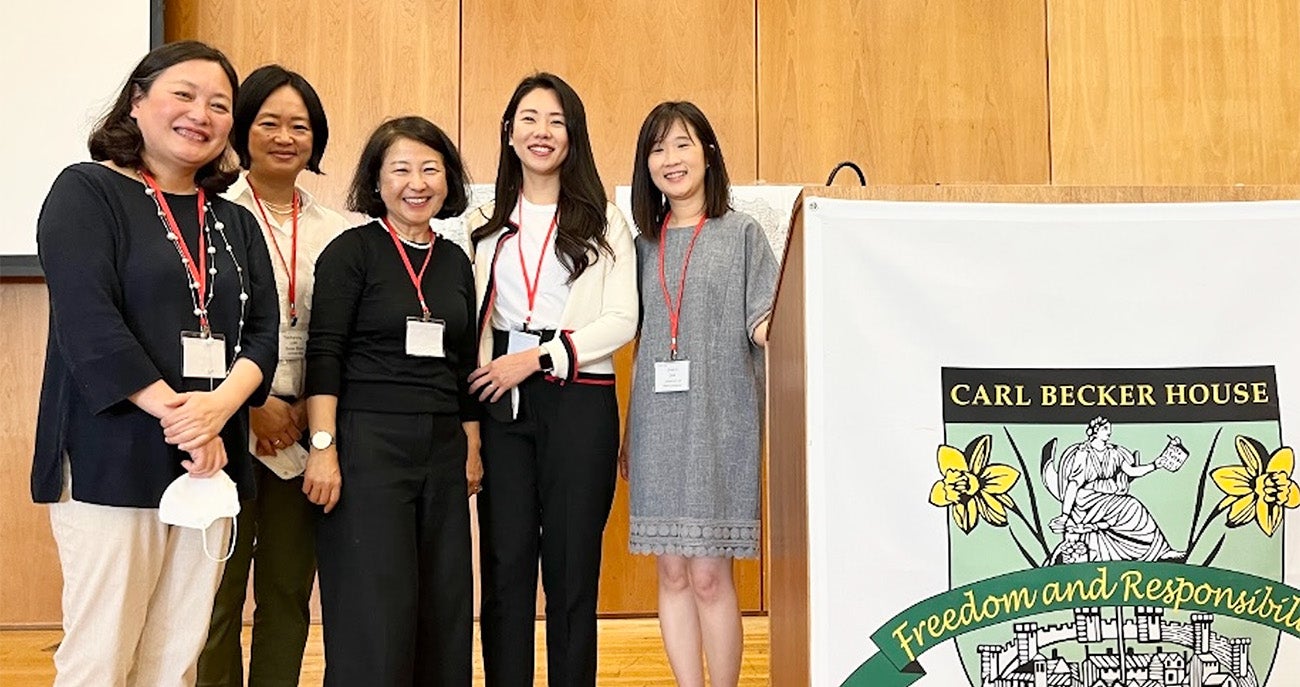
Yookyung Lee, adjunct instructor of Korean language in the Department of World Languages at Boise State, presented a workshop titled, “Transitioning to the New Normal: Designing (A)synchronous Tasks in Task-supported Curricula,” at the 27th annual American Association of Teachers of Korean conference held at Cornell University in June along with Angela Lee-Smith from Yale University and Haewon Cho, Siwon Lee and Eunae Kim from the University of Pennsylvania.
In the workshop, the group presented a new task-supported curricular model for low-proficiency learners at beginning and intermediate levels that they have implemented at private and state universities. The new model provides a systematic roadmap and scaffolded instruction with which to transition from perception-based to production-based tasks that adhere to the National Council of State Supervisors for Languages and the American Council on the Teaching of Foreign Languages’ Can-Do Statements while also connecting students’ in-class learning experiences with outside-of-class tasks.
The group demonstrated their model with hands-on activities on how to:
- Design a contextual task or assessment for meaningful interaction.
- Provide scaffolded input utilizing authentic sources like Youtube, vlogs and websites.
- Streamline authentic perception-based and production-oriented tasks.
- Select and utilize tools to design technology-mediated synchronous tasks.
- Provide assessments and feedback.
Lee reported that the team’s guided tasks and assessment tools benefited the development of students’ linguistic confidence and intercultural competence, as well as fostered their sense of achievement in learning, based upon feedback and observations among students in her Korean language classes.
The group published their model as four open educational resource Pressbooks on the University of Pennsylvania website: